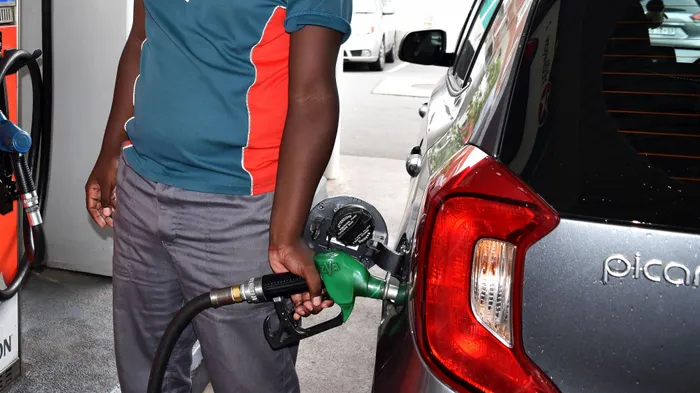
There have been mixed reactions from industry and experts following slight decreases in the petrol and diesel prices at the beginning of November. .
Image: File Tumi Pakkies / Independent Newspapers
South Africans are seeing slight relief at the pumps this month after the Department of Mineral and Petroleum Resources announced decreases in petrol and diesel prices, though experts say the cuts remain modest amid broader cost pressures in the economy.
Minister of Mineral and Petroleum Resources Gwede Mantashe confirmed that both grades of petrol dropped by 51 cents per litre, while both grades of diesel declined by 21 cents per litre at the start of November.
According to the Road Freight Association (RFA), the lower diesel prices will offer some financial reprieve to transporters.
RFA CEO Gavin Kelly said that as of 5 November, the cost of 500ppm diesel fell by 21 cents per litre and 50ppm diesel by 19 cents, while 93 and 95 octane petrol fell by 39 cents per litre.
He noted that the Central Energy Fund (CEF) attributed the adjustment to an appreciating rand — averaging R17.29 to the US dollar compared with R17.49 previously — and a reduction in global oil prices.
“Transport costs are beginning to head south (i.e. becoming less expensive) from the incredible highs seen during the year, but fuel prices are still 21.4% higher than what they were this time last year," Kelly said.
"We have a long way to go to bring the cost of logistics down to a far more palatable (and sustainable) level.”
Kelly added that the lower prices would ease cash flow pressures for trucking firm
“In a simple scenario, a truck with two 500-litre fuel tanks will now pay R820 less for every complete refuel (for 500ppm diesel). When this is multiplied by the number of vehicles and trips (refuels) a transporter has – the savings add up and release pressure on cash flow.”
Ulrich Joubert, an independent economist, said the diesel price cut is particularly beneficial for the agricultural sector, where the planting season is currently underway in parts of the country.
“In the northern parts of the country, the planting season is currently underway, so some of those fields have been prepared already, but I would think that it's an ongoing process at the moment," Joubert said.
"That's a benefit. It could have an impact on the profit situation of the farming community in general. It could also assist in controlling the cost of food.”
Abigail Moyo, spokesperson of the trade union Uasa, welcomed the reductions, saying they would bring relief to workers ahead of the festive season.
“Uasa urges its members and South Africans in general to use the fuel price savings wisely for travel and other festive season expenses, while keeping in mind the upcoming costs of school fees and uniforms in January.”
Professor Waldo Krugell, an economist at North-West University, said that while the cuts were “smaller than hoped for,” they are still significant.
“Lower fuel prices always free up space in a household or business budget. It also helps to lower the CPI inflation rate. With CPI inflation low and stable around 3%, I am still hoping for a last 25 bps repo rate cut this month.”
Unisa economist Dr Eliphas Ndou said that the decline in diesel and petrol prices is good news for consumers.
“The decline will dampen the fuel price contributions to the consumer price inflation for this month as well as producer price inflation. This is much-needed relief for consumers and motorists.”
Lara Hodes, Investec economist, said that the dip in fuel prices was underpinned by the appreciation of the rand against the greenback during the review period, while oil prices were also softer.
“The dip in fuel prices from 5 November was underpinned by the appreciation of the rand against the greenback during the review period, while oil prices were also softer.”
BUSINESS REPORT